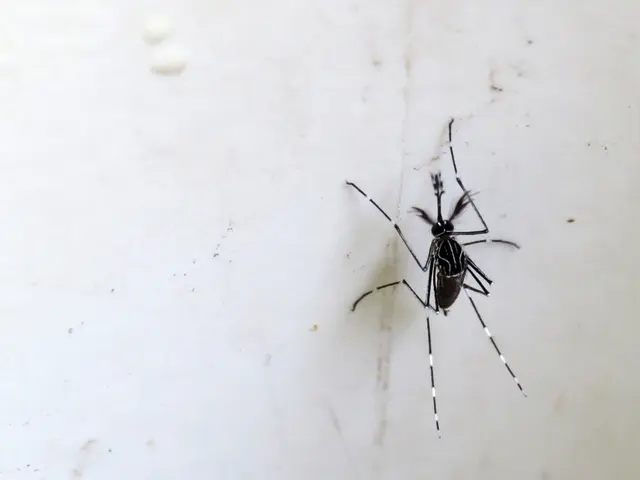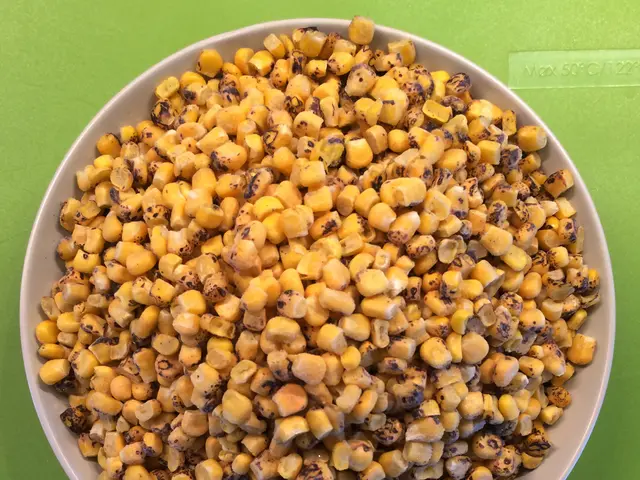Agricultural Woes: The Venomous Cicada Ravaging Farms Across Germany
A Cicada's Detrimental Impact on Sugar Beet and Potato Crops - Insect Invasion: Cicadas Endanger Sugar Beet and Potato Crops
A menacing cicada, infamous for spreading the plant disease Stolbur, is sending shivers through the agricultural community of Germany. These tiny insects, feasting on sugar beets, potatoes, and various vegetables alike, are wreaking havoc, leaving farmers battling to preserve their crops amidst the escalating climate crisis.
Geographically, the cicada has wormed its way from Baden-Württemberg, across Rhineland-Palatinate, Bavaria, Hesse, and settled in Lower Saxony, Saxony, and Saxony-Anhalt. The southwest, by far, has suffered the worst, witnessing significant crop losses and widespread economic consequences.
In the southern regions, potatoes are most at risk, as close to a quarter of the regions where reed glass-winged cicadas lurk are potato growing areas. These pesky critters are sapping the lifeblood right out of the crops, leaving behind rubbery roots and wilted leaves. This results in lower yields, affecting taste and quality significantly, especially in the sugary content of sugar beets and potatoes. In severe cases, entire crops wither away, leaving nothing for storage.
Stolbur, the disease carried by the reed glass-winged cicada, has been a persistent threat to sugar beets. Last year, it ravaged 75,000 hectares of sugar beet farms alone, marking an increase from the devastation wrought in 2023 on 40,000 hectares. The disease is becoming an economic liability for entire regions, pursuing farmers towards potential failure and crippling farming operations.
The German government has extended emergency authorizations for unapproved plant protection products to combat the cicada, albeit under strict conditions. The Federal Office for Consumer Protection and Food Safety (BVL) provides these approvals for pests that cannot be managed in any other way.
Despite these measures, farmers are seeking more support from the government. They're eager for permission to use effective means for controlling cicadas and demand research into breeding crops resistant to the cicada's onslaught. Stefan Streng, chairman of the Economic Association Sugar, calls it the greatest agricultural challenge of the coming years, pleading for immediate assistance.
Enrichment Data:
To tackle the rampant cicada infestation in a sustainable manner, it's vital to consider comprehensive solutions:
- IPM Strategies: The aim is to minimize reliance on chemical pesticides and promote eco-friendly agricultural practices via Integrated Pest Management (IPM).
- Monitoring and Surveillance: Enhanced monitoring and surveillance of affected regions is critical for detecting and controlling cicada populations early. This invaluable information helps devise targeted solutions.
- Research: Investigating the biology, behavior, and ecology of cicadas leads to a better understanding of their lifecycle. This knowledge can help develop targeted control strategies and resistance breeding methods for crops.
- Public Awareness: Cultivating awareness among the agricultural community and the general public on the importance of cicada control is essential to promote cooperation and support for mitigation efforts.
In addition to these strategies, collaborating with agricultural organizations, conducting field studies, and working with entomologists could aid in further understanding the reed glass-winged cicada and finding lasting solutions to curtail its devastating impact on Germany's agricultural industry.
- The agricultural community in Germany urgently calls for research into breeding crops resistant to the reed glass-winged cicada's onslaught, as a part of sustainable Integrated Pest Management (IPM) strategies.
- To counter the rampant cicada infestation in a more environmentally friendly manner, enhanced monitoring and surveillance of affected regions is required to detect and control cicada populations early.
- As the cicada thrives amidst the escalating climate crisis, the agricultural sector must collaborate with scientific organizations, conducting field studies, and working with entomologists to better understand the cicada's biology, behavior, and ecology for devising targeted control strategies and crop resistance methods.
Moreover, public awareness campaigns are essential to educate both the agricultural community and general population on the gravity of cicada control for the preservation of Germany's agricultural industry.








